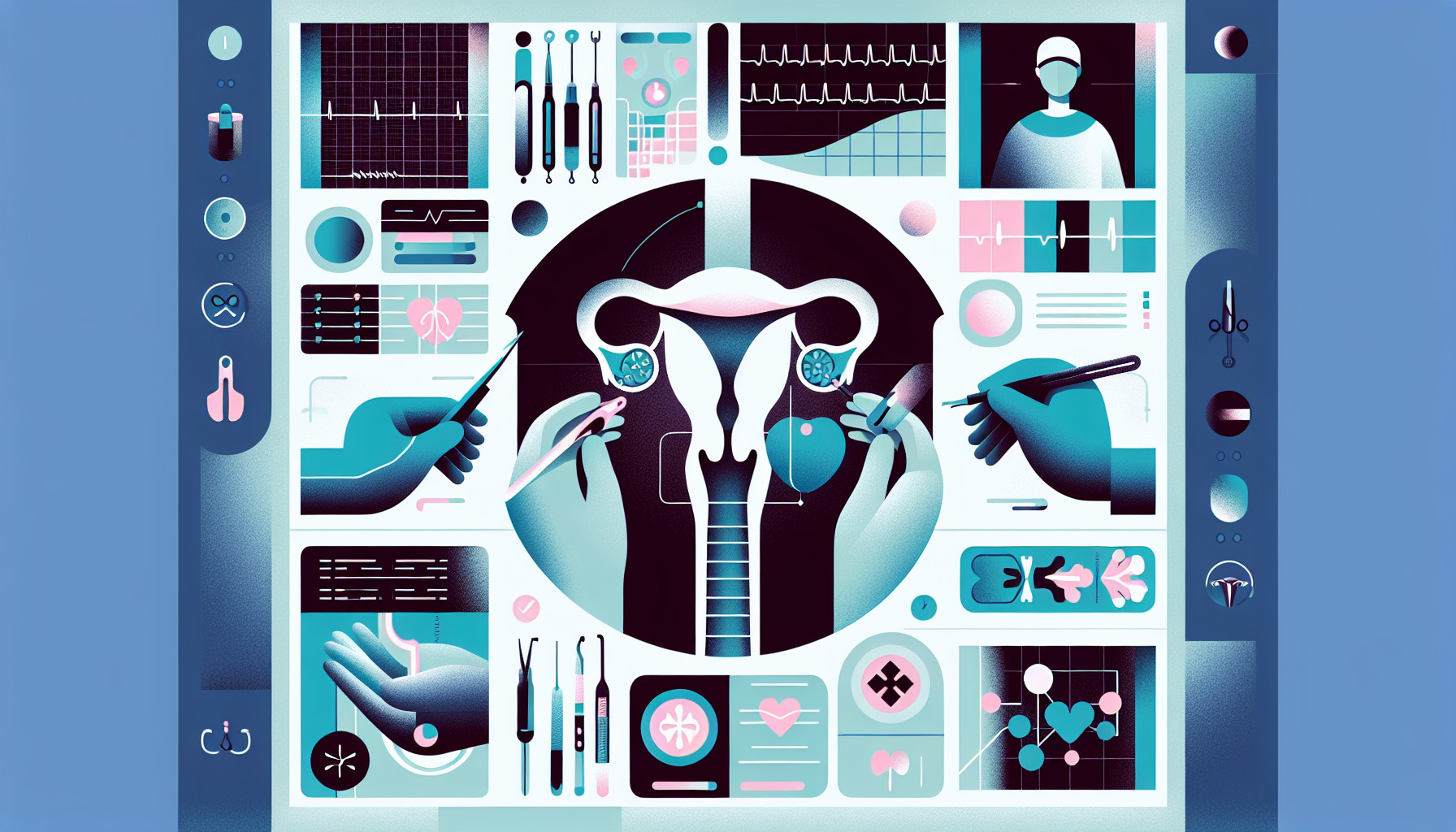Our Summary
This research looked at the outcomes of pregnancies that occurred after a procedure called endometrial ablation. This procedure is done to treat several conditions, including heavy menstrual bleeding. The researchers looked at 274 pregnancies from 99 different sources, including published articles and case reports. They found that the majority of these pregnancies ended in termination, miscarriage, or ectopic pregnancy. For those pregnancies that continued, there were high rates of complications, such as premature birth, caesarean delivery, and issues with the placenta. As a result, the researchers suggest that women who have had endometrial ablation should be warned about the possible pregnancy complications and encouraged to use reliable contraception.
FAQs
- What is endometrial ablation and why is it performed?
- What were the common outcomes of pregnancies that occurred after endometrial ablation according to the research?
- What were the advised precautions for women who have undergone endometrial ablation?
Doctor’s Tip
One helpful tip a doctor might tell a patient about endometrial ablation is to discuss the potential impact on future fertility and pregnancy. It’s important to understand that while pregnancy is still possible after the procedure, there may be higher risks and complications. Therefore, it is recommended to use reliable contraception to prevent unintended pregnancies. Additionally, it’s important to have regular follow-up appointments with your healthcare provider to monitor any changes in your health and address any concerns.
Suitable For
Patients who are typically recommended for endometrial ablation are those who have heavy menstrual bleeding that has not responded to other treatments, such as medications or hormonal therapy. Endometrial ablation is often considered for women who have completed their childbearing years or who do not wish to have any more children, as the procedure can affect fertility. It may also be recommended for women who have certain medical conditions that make them poor candidates for other types of surgery, such as fibroids or endometriosis. However, it is important for patients to understand the potential risks and complications associated with this procedure, including the impact on future pregnancies.
Timeline
- Before endometrial ablation:
- Patient experiences heavy menstrual bleeding or other symptoms that lead to the decision to undergo endometrial ablation.
- Patient consults with their healthcare provider to discuss the procedure and its potential risks and benefits.
- Patient undergoes pre-operative testing and preparation before the scheduled procedure.
- After endometrial ablation:
- Patient may experience some mild discomfort, cramping, or spotting immediately following the procedure.
- Patient is advised to rest and avoid strenuous activities for a period of time after the procedure.
- Patient may experience some changes in their menstrual cycle, such as lighter or irregular periods.
- Patient follows up with their healthcare provider for post-procedure care and monitoring.
- Patient may experience relief from their previous symptoms, such as heavy menstrual bleeding.
What to Ask Your Doctor
- What are the potential risks and complications associated with pregnancy after endometrial ablation?
- How likely is it for me to become pregnant after undergoing endometrial ablation?
- What contraceptive methods do you recommend to prevent pregnancy after endometrial ablation?
- Are there any special considerations or precautions I should take if I do become pregnant after endometrial ablation?
- What are the chances of having a successful pregnancy and delivery after endometrial ablation?
- How will endometrial ablation affect my fertility and ability to conceive in the future?
- Are there any alternative treatments or options for managing heavy menstrual bleeding that do not impact fertility or pregnancy outcomes?
- What steps should I take if I suspect I may be pregnant after undergoing endometrial ablation?
- What follow-up care or monitoring is recommended for women who have had endometrial ablation and are considering pregnancy?
- Can you provide me with any additional resources or information about pregnancy after endometrial ablation?
Reference
Authors: Kohn JR, Shamshirsaz AA, Popek E, Guan X, Belfort MA, Fox KA. Journal: BJOG. 2018 Jan;125(1):43-53. doi: 10.1111/1471-0528.14854. Epub 2017 Sep 27. PMID: 28952185
